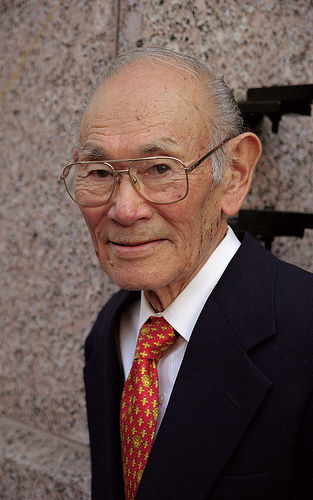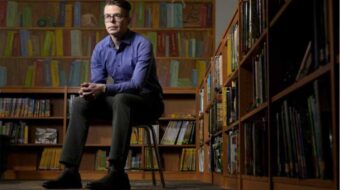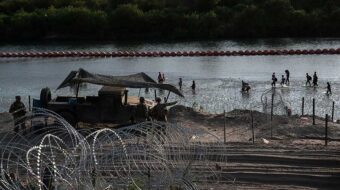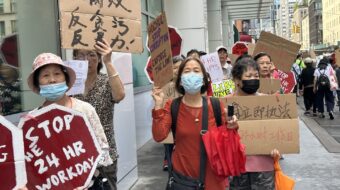
OAKLAND, Calif. – Almost seven decades after young Fred Korematsu was arrested for defying orders to relocate to an internment camp during World War II, the California Assembly last week passed a bill to recognize his Jan. 30 birthday as “Fred Korematsu Day of Civil Liberties.” The measure introduced by Assemblyman Warren Furutani, D-Los Angeles, passed by a 63-0 vote. It now goes to the state Senate.
Korematsu, the U.S.-born son of Japanese immigrants, was a young welder living in Oakland when the war erupted following Japan’s Dec. 7, 1941 bombing of Pearl Harbor. In the following months, the Army rounded up some 120,000 Japanese Americans living on the West Coast and forced them into internment camps in some of the country’s most desolate areas.
Refusing to obey the relocation orders, Korematsu went into hiding. Arrested and jailed in 1942, he appealed to the Supreme Court, on grounds it was unconstitutional for Japanese Americans to be incarcerated without charges, evidence or trial.
In a 1944 decision that constitutional law scholars have called a “civil liberties disaster,” the court upheld his conviction, 6-3, on the basis of the military’s claims that Japanese Americans were aiding the enemy. In a dissent, Justice Robert Jackson challenged the evidence and said the court “for all time has validated the principle of racial discrimination.”
President Franklin Roosevelt rescinded the internment order in 1944, and the last camp closed in 1945.
And so things stood, until in the early 1980s, University of California political science professor Peter Irons and researcher Aiko Herzig Yoshinaga discovered that the U.S. Solicitor General who argued the government’s case had intentionally suppressed evidence, including statements from the FBI and the Office of Naval Intelligence, that Japanese Americans had committed no wrongs against their country.
When a U.S. District Court in San Francisco formally erased his conviction in 1983, Korematsu said, “As long as my record stands in federal court, any American citizen can be held in prison or concentration camps without a trial or a hearing. Therefore, I would like to see the government admit that they were wrong and do something about it so this will never happen again to any American citizen of any race, creed or color.”
In her decision, U.S. District Judge Marilyn Hall Patel wrote that the case “stands as a constant caution that in times of war or declared military necessity our institutions must be vigilant in protecting our constitutional guarantees,” and that “national security must not be used to protect governmental actions from close scrutiny and accountability.”
In 1988, after an investigation by a presidential commission, Congress apologized and granted each internment survivor $20,000 personal compensation. In 1998, President Bill Clinton awarded Korematsu the country’s highest civilian honor, the Presidential Medal of Freedom.
After Sept. 11, 2001, Korematsu spoke out against racial profiling of people of Middle Eastern descent, and filed an amicus brief with the Supreme Court over the prolonged internment of prisoners at Guantanamo.
Fred Korematsu died in 2005, at the age of 86.
Korematsu’s daughter, Karen Korematsu Haigh, told the Los Angeles-based Rafu Shimpo that her father’s personal experience and the suffering of the entire community had been so painful that he did not speak about it for many years. She said she was in high school before she learned of his conviction.
“Honoring my father on Fred Korematsu Day of Civil Liberties and the Constitution on his birthday keeps his legacy alive,” she said.
Photo: Fred Korematsu (Lia Chan/CC)












Comments